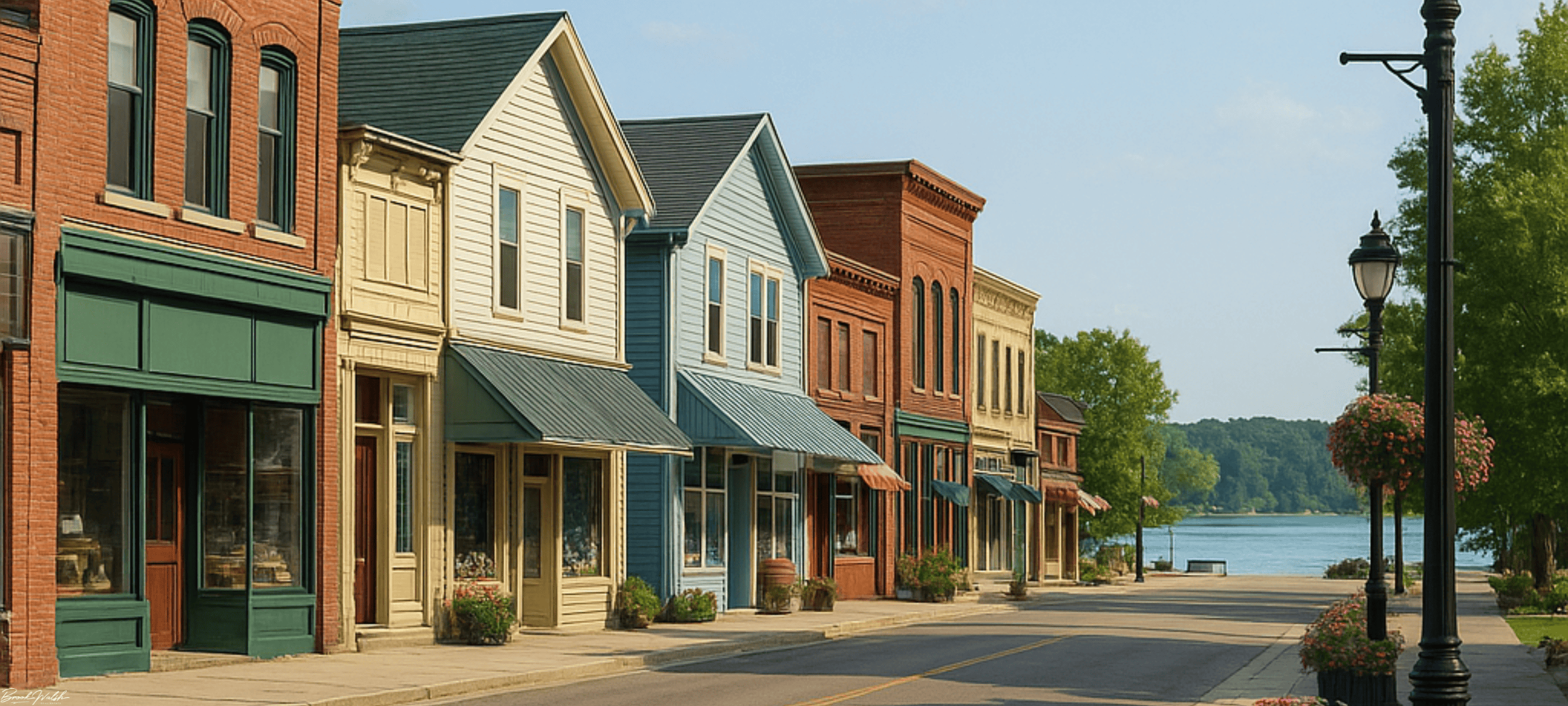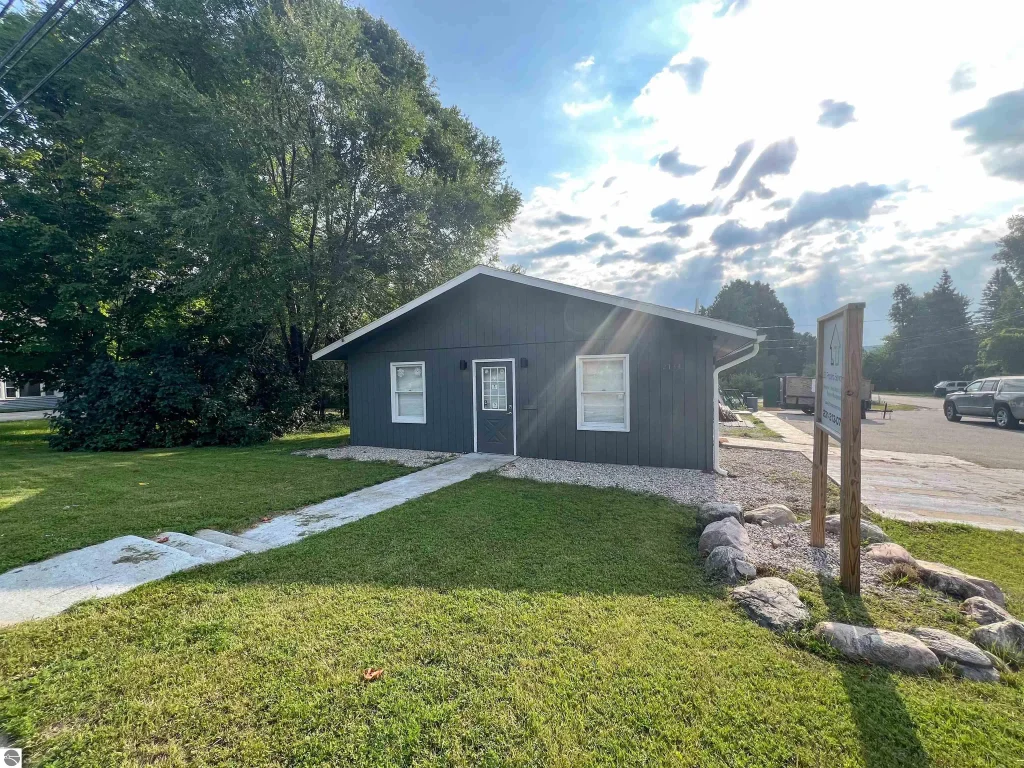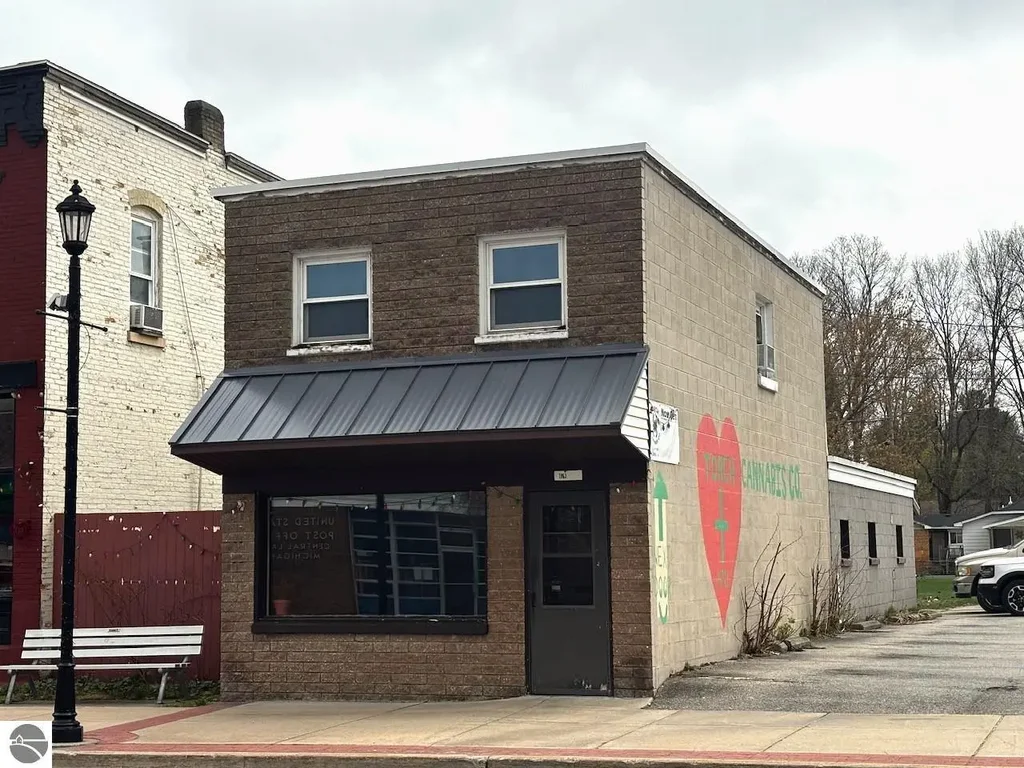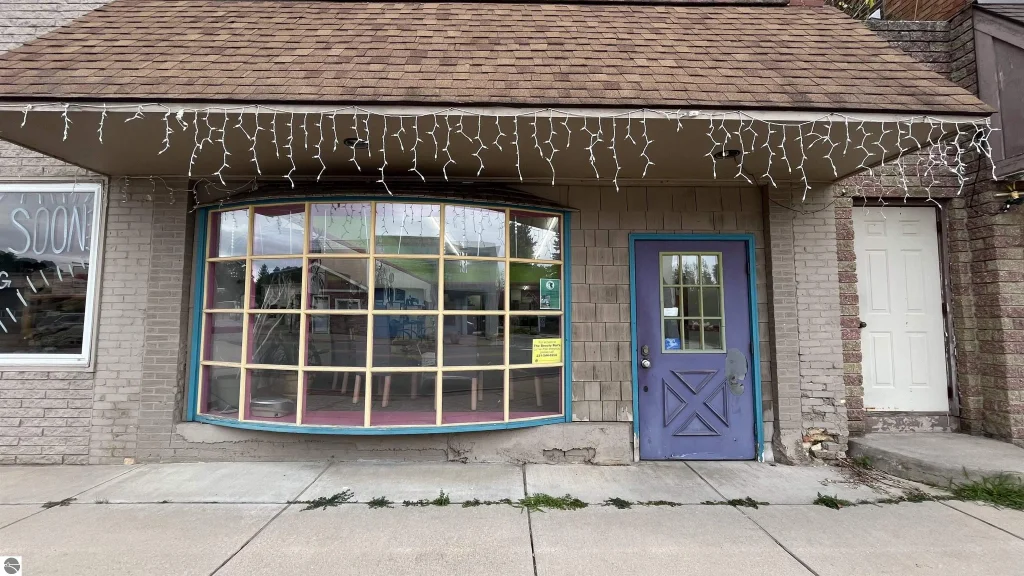Real Estate Statistics
| Average Price | $208K |
|---|---|
| Lowest Price | $150K |
| Highest Price | $250K |
| Total Listings | 3 |
| Avg. Days On Market | 46 |
| Avg. Price/SQFT | $134 |
Property Types (active listings)
Browse Central Lake, MI Commercial Real Estate for Sale and Lease
- All Listings
- $100,000 - $200,000
- $200,000 - $300,000
Central Lake, MI Commercial Real Estate for Sale and Lease: Top 10 Opportunities
When exploring Central Lake, MI Commercial Real Estate for Sale and Lease, investors and business owners alike are greeted with a wealth of options tailored to small-town charm and lakeside appeal. Situated at the northern tip of Lake Michigan’s Chain of Lakes, Central Lake combines scenic beauty with steady economic growth.
Whether you’re looking to open a boutique, establish a professional office, or secure an industrial space, Central Lake delivers diverse opportunities. In this guide, we’ll dive into the local market, highlight prime property types, break down leasing strategies, and analyze investment returns—all designed to help you make confident, informed decisions.
Market Overview of Central Lake Commercial Real Estate

Central Lake’s commercial real estate market is gaining traction thanks to its unique blend of tourism-driven commerce and year-round resident demand. A growing number of entrepreneurs are recognizing the appeal of a location that balances community-oriented retail corridors with undeveloped parcels ripe for industrial or mixed-use development.
Economic Drivers and Demographics
Central Lake’s population sits just above 1,000 residents, but the broader service area—including neighboring Elk Rapids and Bellaire—swells to over 10,000 people during peak summer months. Key economic drivers include:
-
Tourism & Hospitality: With boating, fishing, and hiking trails nearby, Central Lake draws visitors from across the Midwest. Seasonal rental properties and lakeside restaurants benefit local retail strips.
-
Local Services: Healthcare clinics, financial services, and professional practices cater to both full-time residents and second-home owners.
-
Small Manufacturing & Craft Industries: Niche manufacturers—such as custom furniture makers and craft breweries—are moving in, attracted by relatively low costs and the “made-in-Michigan” cachet.
Demographically, the median household income in the Central Lake area hovers around $55,000, with a significant segment of retirees and remote professionals. This mix creates steady demand for convenience retail, personal services, and professional office space.
Business Activity and Foot Traffic Patterns
Understanding foot traffic is essential for retail and mixed-use site selection. Major patterns include:
-
High Summer Footfall: June through August sees daily pedestrian counts north of 500 on M-88/Main Street.
-
Weekend Spikes: Even in shoulder seasons, Friday–Sunday tourist influx can double average traffic.
-
Off-Season Stability: Local businesses enjoy a stable base of repeat customers, thanks to community events (e.g., the Central Lake Art Fair, Fall Harvest Festival).
Retail corridors adjacent to the lakefront and near the junction of US-131 and M-88 rank highest for visibility. For industrial ventures, properties along County Road 610 offer easy access to the regional highway network without sacrificing scenic surroundings.
Prime Commercial Property Types
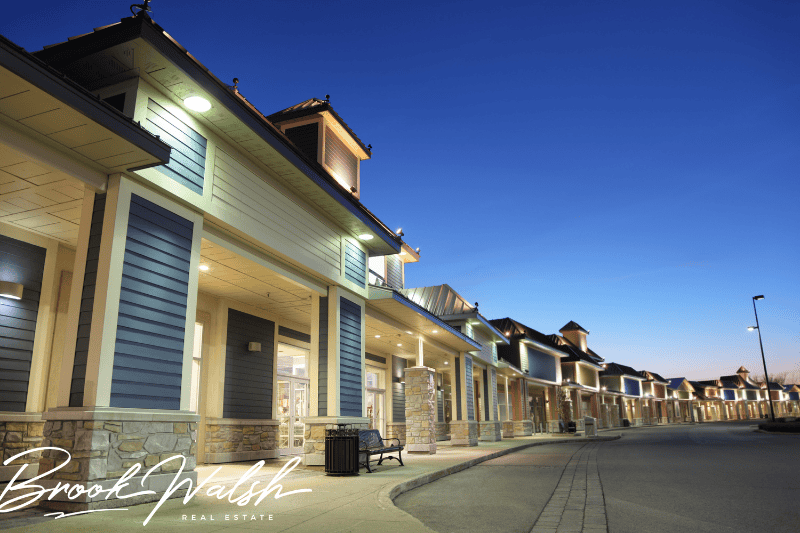
Central Lake’s real estate landscape caters to a variety of ventures. From storefront storefronts to warehouse complexes, here’s a breakdown of the most sought-after property classes.
Retail Spaces and Shopping Centers
Retail spaces range from historic Main Street storefronts to modern strip centers. Highlights include:
-
Main Street Historic Row: Character-rich buildings, 800–1,500 sq ft, original wood flooring and exposed brick.
-
Lakeside Plaza: Built 2010, ample parking, anchor tenant potential, 2,000–5,000 sq ft bays.
-
Local Boutique Clusters: Suites designed for artisan goods, local crafts, and pop-up markets.
Retail Summary Table
| Property Type | Average Size (sq ft) | Typical Lease Rate (per sq ft/yr) |
|---|---|---|
| Main Street Shops | 800 – 1,500 | $18 – $22 |
| Strip Center Units | 1,200 – 3,000 | $15 – $20 |
| Lakeside Retail Bay | 1,500 – 4,000 | $20 – $25 |
Office Buildings and Professional Suites
Small to medium-sized professional practices favor Class B and C office spaces:
-
Historic Downtown Offices: 600–1,200 sq ft suites, lease includes utilities and reception services.
-
Modern Business Park: 2,000–6,000 sq ft floorplates, shared conference rooms, and upgraded fiber-optic internet.
Office tenants benefit from lower overheads than metropolitan areas, yet still enjoy robust connectivity and quality-of-life amenities that attract top talent.
Industrial Warehouses and Flex Spaces
Light industrial users and artisans need affordable, flexible footprints:
-
County Road 610 Warehouse Park: 5,000–20,000 sq ft bays, 18-ft ceilings, drive-in docks.
-
Flex Spaces on Business Loop: 1,500–4,000 sq ft units with optional office build-outs.
Industries such as specialty food processing, furniture assembly, and outdoor equipment fabrication find Central Lake’s proximity to rail lines (in nearby Elk Rapids) and highway access a winning combination.
Leasing Options and Strategies
Navigating leases requires a keen eye on terms, hidden costs, and future flexibility. Whether you’re a tenant or a landlord, understanding the landscape is crucial.
Common Lease Structures and Terms
Three lease structures dominate:
-
Gross Lease: Tenant pays a flat rent; landlord covers taxes, insurance, and maintenance.
-
Net Lease (NNN): Tenant pays base rent plus a pro-rata share of property taxes, insurance, and common area maintenance (CAM).
-
Modified Gross: A hybrid where landlord covers some operating expenses and tenant covers others.
| Lease Type | Landlord Pays | Tenant Pays (Typical) |
|---|---|---|
| Gross Lease | Taxes, Insurance, CAM | Base Rent |
| NNN Lease | Capital Repairs | Rent + Taxes + Insurance + CAM |
| Modified Gross | Selected Expenses | Rent + Negotiated Expense Categories |
Early on, consider:
-
Lease Duration: 3–5 year terms common; options for renewal.
-
Rent Escalations: Annual increases of 2–3% or CPI-based adjustments.
-
Tenant Improvements (TI): Build-out allowances negotiated based on creditworthiness.
Negotiation Tips for Tenants and Landlords
Tenants Should:
-
Ask for TI Credits: Especially in office suites, to tailor interiors to brand style.
-
Negotiate a Cap on CAM: Limit increases to predictable percentages.
-
Include Early Exit Clauses: In case business outgrows the space or market shifts.
Landlords Should:
-
Vet Tenant Credit: Prioritize financially stable tenants or require guarantees.
-
Structure Renewal Options: Lean terms toward rent escalations that match market growth.
-
Offer Incentives: Such as rent abatement periods or advertising credits in exchange for longer lease terms.
Investment Analysis and ROI

A successful investment demands hard data, realistic projections, and access to capital. Central Lake’s market presents an attractive combination of modest entry costs and steady demand drivers.
Current Market Trends and Price Projections
-
Vacancy Rates: Fall between 5–8% across all northern Michigan commercial real estate classes—below state average of 10%.
-
Cap Rates: Retail & office cap rates hover around 7–8%; industrial closer to 6–7%, reflecting growing demand for light-manufacturing.
-
Price Growth: Average annual appreciation of 3–5% over past five years, with peaks during summer-tourism booms.
Analysts forecast moderate growth as infrastructure improvements—such as waterline upgrades and streetscape enhancements—boost property values through 2027.
Financing Options and Incentives
Various financing programs and incentives can improve returns:
-
Traditional Commercial Mortgages: 20–25% down, 5–10 year amortizations, fixed or variable rates.
-
SBA 7(a) & 504 Loans: Lower down payments, extended amortizations up to 25 years.
-
Local Grants & Tax Abatements: Administered through the Michigan Economic Development Corporation, offering property tax incentives and façade improvement grants.
-
Historic Rehabilitation Credits: For properties in the downtown historic district, federal and state credits up to 45%.
Pro Tip: Partnering with a local lender can unlock community-based lending pools, often with below-market interest rates.
FAQs about Central Lake, MI Commercial Real Estate for Sale and Lease

Q. What types of commercial properties are available in Central Lake?
A. Central Lake offers retail storefronts, office suites, and light-industrial warehouses. Historic buildings on Main Street coexist with modern flex spaces along County Road 610.
Q. How do lease rates in Central Lake compare to nearby markets?
A. Lease rates here run 10–20% below those in Traverse City or Charlevoix, making Central Lake an affordable alternative without sacrificing access to regional customers.
Q. Are there tax incentives for investing in Central Lake?
A. Yes—property tax abatements for new developments, façade grants for historic renovations, and eligibility for state-level incentives via MEDC programs.
Q. What zoning regulations should I be aware of?
A. Commercial zones C-1 (downtown retail), C-2 (highway commercial), and LI (light industrial) each come with specific use lists. Always confirm with Central Lake Township zoning staff before signing a lease.
Q. How is the local economic outlook?
A. The town’s reliance on tourism and resident services has produced stable growth. Infrastructure investments—such as the recent US-131 corridor improvements—signal continued optimism.
Q. Where can I get professional broker assistance?
A. BrookWalsh.com and NorthernMichiganEscapes.com specialize in Central Lake commercial transactions. Licensed brokers can guide you through market analysis, site selection, and negotiation.
Conclusion and Next Steps
Central Lake, with its picturesque setting and stable economic pillars, represents a compelling commercial real estate frontier. By understanding the market overview, selecting the right property type, structuring favorable lease terms, and leveraging financing incentives, you can maximize returns and build lasting value. Ready to explore the Top 10 Opportunities? Reach out to a local expert, tour available listings, and secure your stake in Central Lake’s vibrant commercial future.
Continue your Northern Michigan commercial real estate search in the communities below or contact Brook Walsh to help you with your search.
Browse Other Communities
- Alanson, MI Commercial Real Estate
- Alpena, MI Commercial Real Estate
- Atlanta, MI Commercial Real Estate
- Bay Harbor, MI Commercial Real Estate
- Beaver Island, MI Commercial Real Estate
- Bellaire, MI Commercial Real Estate
- Beulah, MI Commercial Real Estate
- Brutus, MI Commercial Real Estate
- Boyne City, MI Commercial Real Estate
- Boyne Falls, MI Commercial Real Estate
- Cadillac, MI Commercial Real Estate
- Carp Lake, MI Commercial Real Estate
- Central Lake, MI Commercial Real Estate
- Charlevoix, MI Commercial Real Estate
- Cheboygan, MI Commercial Real Estate
- Cross Village, MI Commercial Real Estate
- East Jordan, MI Commercial Real Estate
- Elk Rapids, MI Commercial Real Estate
- Ellsworth, MI Commercial Real Estate
- Empire, MI Commercial Real Estate
- Fife Lake, MI Commercial Real Estate
- Frankfort, MI Commercial Real Estate
- Gaylord, MI Commercial Real Estate
- Glen Arbor, MI Commercial Real Estate
- Grayling, MI Commercial Real Estate
- Harbor Springs, MI Commercial Real Estate
- Hillman, MI Commercial Real Estate
- Honor, MI Commercial Real Estate
- Houghton Lake, MI Commercial Real Estate
- Indian River, MI Commercial Real Estate
- Interlochen, MI Commercial Real Estate
- Johannesburg, MI Commercial Real Estate
- Kalkaska, MI Commercial Real Estate
- Kewadin, MI Commercial Real Estate
- Kingsley, MI Commercial Real Estate
- Lake Ann, MI Commercial Real Estate
- Lake City, MI Commercial Real Estate
- Leland, MI Commercial Real
- Levering, MI Commercial Real Estate
- Lewiston, MI Commercial Real Estate
- Mackinac Island, MI Commercial Real Estate
- Mackinaw City, MI Commercial Real Estate
- Manton, MI Commercial Real Estate
- Manistee, MI Commercial Real Estate
- Maple City, MI Commercial Real Estate
- Northport, MI Commercial Real Estate
- Onaway, MI Commercial Real Estate
- Onekama, MI Commercial Real Estate
- Pellston, MI Commercial Real Estate
- Petoskey, MI Commercial Real Estate
- Rogers City, MI Commercial Real Estate
- Roscommon, MI Commercial Real Estate
- Suttons Bay, MI Commercial Real Estate
- Tawas City, MI Commercial Real Estate
- Thompsonville, MI Commercial Real Estate
- Topinabee, MI Commercial Real Estate
- Traverse City, MI Commercial Real Estate
- Vanderbilt, MI Commercial Real Estate
- Walloon Lake, MI Commercial Real Estate
- Williamsburg, MI Commercial Real Estate
- Wolverine, MI Commercial Real Estate

Start searching for your dream home now.
When it comes to convenience, our site is unparalleled. Whether you're in the comfort of your home, or on the go.
Our site works flawlessly on multiple devices so you can find the information you need.

